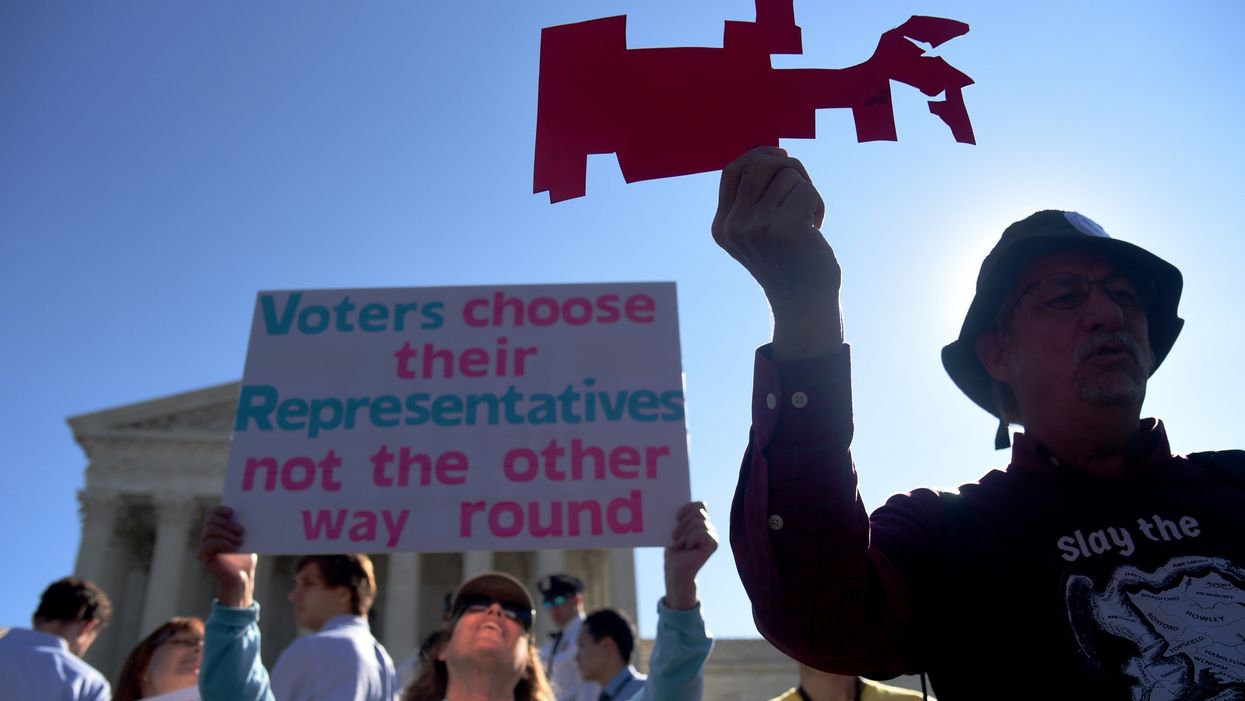The Supreme Court appears unlikely to ban partisan gerrymandering following oral arguments in two cases Tuesday, as the justices rehashed old concerns about interfering with state-drawn congressional maps.
Some members of the court acknowledged the problems of partisan gerrymandering raised by the two cases, involving legislative maps in North Carolina and Maryland. Few had an answer for it.
"I'm not going to dispute that partisan gerrymandering is a problem," said the newest justice, Brett Kavanaugh, who had not yet been appointed to the court when it last heard arguments in redistricting cases. He believes the court should consider gerrymandering a "threat" to democracy.
However, Kavanaugh questioned whether courts should referee, pointing to the growing number of states that have adopted bipartisan redistricting commissions as proof that voters have the power to end the practice.
Justice Neil Gorsuch also appeared more comfortable deferring to "citizen initiatives" – or the ballot referendums that have established these commissions – as a way to fix partisan mapmaking.
In the challenge to North Carolina's map, Rucho v. Common Cause, some liberal justices appeared sympathetic to the idea of intervening to block extreme examples of partisan gerrymandering.
"What I'm trying to do is figure out how to catch the real outliers," Justice Stephen Breyer said, while also acknowledging the court's unresolved quest to find some standard to identify the extremes.
The closest the court came to a consensus on spotting partisan gerrymandering came in the second case, Lamone v. Benisek, which challenges a district drawn by Maryland Democrats that helped flip a safe Republican seat.
Attorney Michael Kimberly, arguing on behalf of those challenging Maryland's map, said that proving in a court that legislators intentionally drew districts to dilute votes for the minority party could be enough to toss out a map on constitutional grounds.
"What makes your case so easy is that everyone was completely upfront about what they were doing," Justice Sonia Sotomayor said.
In both cases, state legislators openly admitted the maps were designed with partisan intentions.
A ruling in the cases is expected at the end of June. The court declined to act on redistricting the last time it heard a similar cases in 2017 and 2018.




















Trump & Hegseth gave Mark Kelly a huge 2028 gift